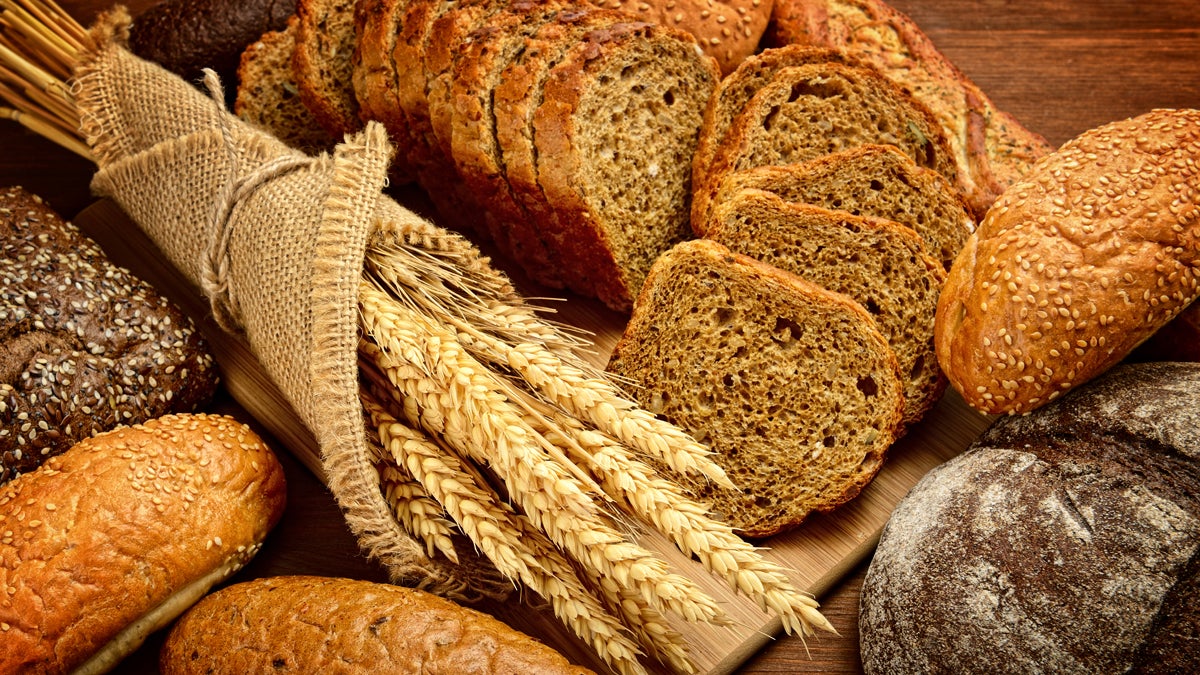Is gluten sensitivity fact or fiction?
Listen
(Shutterstock photo)
Australian researcher Peter Gibson recently conducted a study, which seemingly contradicts his own earlier research that found gluten to cause gastrointestinal distress in some people.
It’s all the rage in the food world – gluten free products, such as pizzas, cookies, breads, candies, even beer! All prepared to cater to the person who has celiac disease, or is gluten sensitive. But, is gluten sensitivity fact or fiction? Australian researcher Peter Gibson recently conducted a study, which seemingly contradicts his own earlier research that had found gluten could cause gastrointestinal distress in some people. The newest study excludes people with celiac disease.
Gluten is a protein found in wheat, barley and rye. Dr. Stephanie Moleski, a gastroenterologist at Jefferson University, says there are major differences between someone who has the genetic celiac disease, and someone who is gluten sensitive.
“When patients with celiac disease eat gluten, they have inflammation of the small bowel, which can cause malabsorption, or other extra-intestinal manifestations, such as headache, joint aches, thinning of the bones,” she said. “Gluten sensitivity is different. It was sort of put on the map by this Australian group, Dr. Gibson’s group. They did a study in 2011, and they looked at patients with gluten sensitivity. They excluded celiac disease—which was important to do first. And they gave them trials of gluten and recorded their G.I. symptoms.”
In the initial study, the gluten caused a lot of gas, bloating, diarrhea and fatigue.
But then, Gibson did a follow-up. Moleski said the second study was nicely designed, and small– just 37 patients. Researchers provided all the food for this study. They gave the patients a diet low in FODMAPs: highly fermentable short-chain carbohydrates, such as apples, pears, mangos, beans, onions and wheat.
Researchers gave their subjects this low FODMAP diet for two weeks, and then, in addition they were given either high gluten, low gluten, or no gluten foods. The patients did NOT know which group they were in.
The result? Moleski said Gibson found that the patients who thought they were gluten sensitive did not have an increase in symptoms when they were given gluten.
According to Moleski, one possible conclusion is that the patients who thought they might be gluten sensitive are really sensitive to FODMAPs, because they did feel better on the low FODMAP diet.
For the person who wonders whether gluten affects them, Moleski said the most important thing is to first exclude celiac disease, because it’s a chronic, life-long condition. The only treatment for celiac is the gluten-free diet.
“It’s very serious,” she said. “And if you start to restrict your diet before being tested for celiac disease, you can have a false negative.”
Her advice: Go to your doctor first.
According to Moleski, one percent of the country’s population has celiac disease, or about 3-million people.
So how has the medical world reacted to this news?
“We know clearly that more than the people who are diagnosed with celiac disease are eating gluten-free,” said Moleski. We see patients who come in frequently who say they’ve eliminated gluten and feel better, and that’s when we really have to look at one: emphasizing that we have to exclude celiac disease, and two: is it gluten, is it FODMAPs, and really looking at food intolerances in general.”
Regardless, is there any harm to eliminating gluten from your diet?
“There can be some health problems when you eliminate gluten,” she said. “You really need to monitor having adequate nutrient intake, such as folate, fiber, thiamine. These are all things your diet can lack.”
Finally, Moleski said when she has patients on a gluten free diet, it’s really important to emphasize that they meet with a nutritionist, who’s well-versed in the gluten free diet.
WHYY is your source for fact-based, in-depth journalism and information. As a nonprofit organization, we rely on financial support from readers like you. Please give today.




